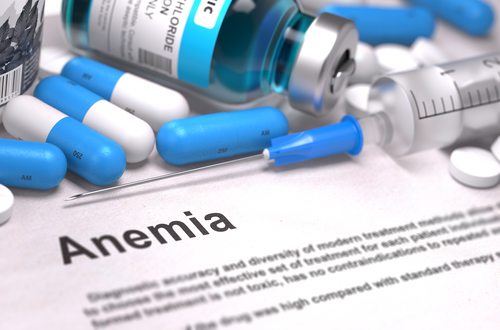You have been feeling unusually tired lately. Maybe you feel short of breath, are experiencing abnormal hair loss, or cannot seem to get rid of your headache. What is the deal? If you have been getting a sufficient amount of sleep and drinking an adequate amount of water but are still plagued with one or more of these symptoms, read on. They could be symptoms of iron deficiency.
Iron is a mineral that plays a vital role in your health and well-being. Without it, many bodily functions would malfunction. The primary roles of iron are to make hemoglobin and to help carry oxygen in the blood to every cell in the body. Without enough iron, your tissues and muscles do not get enough oxygen to work effectively. This can lead to a condition called anemia. Both iron deficiency and anemia can leave you abnormally tired and short of breath.
- General weakness
- Dizziness or lightheadedness
- Extreme fatigue
- Fast heartbeat or heart palpitations
- Easily broken and brittle nails
- Paler than normal skin
- Dry and damaged hair and skin
- Abnormal hair loss
- Chest pain
- Shortness of breath
- Headaches
- Cold hands and feet
- Soreness or inflammation of the tongue
- Cravings for non-nutritive things, such as dirt, starch, or ice
- Poor appetite, especially in children
- Restless legs
- Increased risk of infections
What to Do If You Think You’re Iron Deficient
Talk to Your Doctor
If you think you are showing signs or symptoms of iron deficiency, make an appointment to see your doctor. A simple blood test will confirm whether you have iron-deficiency anemia or not.
Eat Iron-Rich Foods
If your doctor thinks your iron deficiency may be caused by a lack of iron in your diet, think about consuming more iron-rich foods, such as the following:
- Red meat, pork, and poultry
- Dark green, leafy vegetables, such as spinach and kale
- Dried fruit, such as raisins and apricots
- Peas, beans, and other pulses
- Seafood
- Iron-fortified foods
- Seeds and nuts
Take Iron Supplements
Generally, you should only take an iron supplement as a last resort and if your doctor recommends it. This is because taking large amounts of iron can cause other issues, such as constipation. If this occurs, your doctor might also prescribe you stool softeners or laxatives to ease bowel movements. If you do take an iron supplement, try drinking orange juice with it to boost iron absorption. According to healthline.com, eating foods high in vitamin C will help your body absorb iron better.
_____
Are you (or a loved one) looking for a home health care provider? As you begin exploring your options, check out what Phoenix Home Care has to offer. We provide many home health services, including those that require the assistance of a medical professional, and we are committed to improving the quality of life for each of our clients. Our dedicated staff would love to help you get back to living the fullest life possible. If you have any questions, leave us a message or call 855-881-7442 to speak with one of our friendly team members. With our help, you will soon be on the journey to a happier, healthier you!






